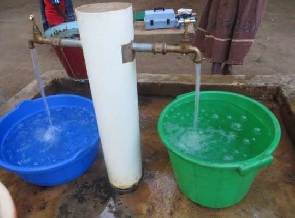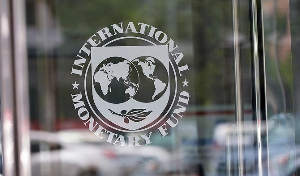Water is essential for life, yet in Ghana, access to clean and reliable water resources is becoming increasingly challenging. Water scarcity and pollution are growing problems, driven by climate change, population growth, and human activities like illegal mining and improper waste disposal.
These challenges threaten not only public health but also agriculture, industry, and the environment. However, efforts to manage and conserve water resources, alongside innovative community-led projects, offer hope for a sustainable future. This article discusses the causes and impacts of Ghana's water crisis and highlights solutions to help secure this vital resource for future generations.
Water scarcity and pollution are two of the most pressing challenges facing Ghana's water resources. Climate change has disrupted rainfall patterns, leading to prolonged droughts in some regions and erratic flooding in others, both of which negatively impact water availability. Furthermore, illegal mining activities, commonly known as galamsey, have severely polluted major rivers such as the Pra, Ankobra, and Offin with harmful chemicals like mercury rendering them unsafe for consumption and aquatic life.
According to the Water Resources Commission of Ghana, over 60% of water bodies in mining regions are now considered polluted due to these activities. Waste management practices that lead to the dumping of plastics and sewage into water sources, these issues increase the water crisis, endangering both human health and biodiversity.
Dr Yaw Agyeman Boafo, from the Centre for Climate Change and Sustainability Studies at the University of Ghana, emphasized deforestation, mining, and waste mismanagement as key drivers of water scarcity and pollution in Ghana. He explained that the destruction of forests, particularly watersheds, exacerbates water scarcity by exposing water sources to rising temperatures and environmental degradation.
Illegal mining (galamsey) further compounds the problem by polluting rivers with heavy metals, while inadequate waste management, especially in urban areas, contaminates water sources with harmful substances, increasing pollution levels and endangering public health.
To tackle these challenges, Dr Boafo highlighted the importance of riparian vegetation systems, where trees and plants are deliberately grown around water bodies to shield them from external threats. He also noted the need to regulate farming and fishing activities near water sources, including reintroducing traditional practices like buffer zones around water bodies.
Additionally, he advocated for banning harmful chemicals in fishing and promoting integrated water management systems. This holistic approach, he explained, involves engaging multiple stakeholders—including local communities, policymakers, and industries—to collectively safeguard Ghana’s water resources for future generations.
In Ghana, water scarcity and pollution pose serious challenges to sustainable development and public well-being. Addressing these issues requires a combination of strategies, including protecting forests, regulating harmful activities near water bodies, and fostering community involvement in water resource management. By adopting sustainable practices and promoting integrated efforts across sectors, Ghana can preserve its vital water resources and secure a healthier, more resilient future for its people and environment.
Opinions of Monday, 25 November 2024
Columnist: Sampson Boamah















